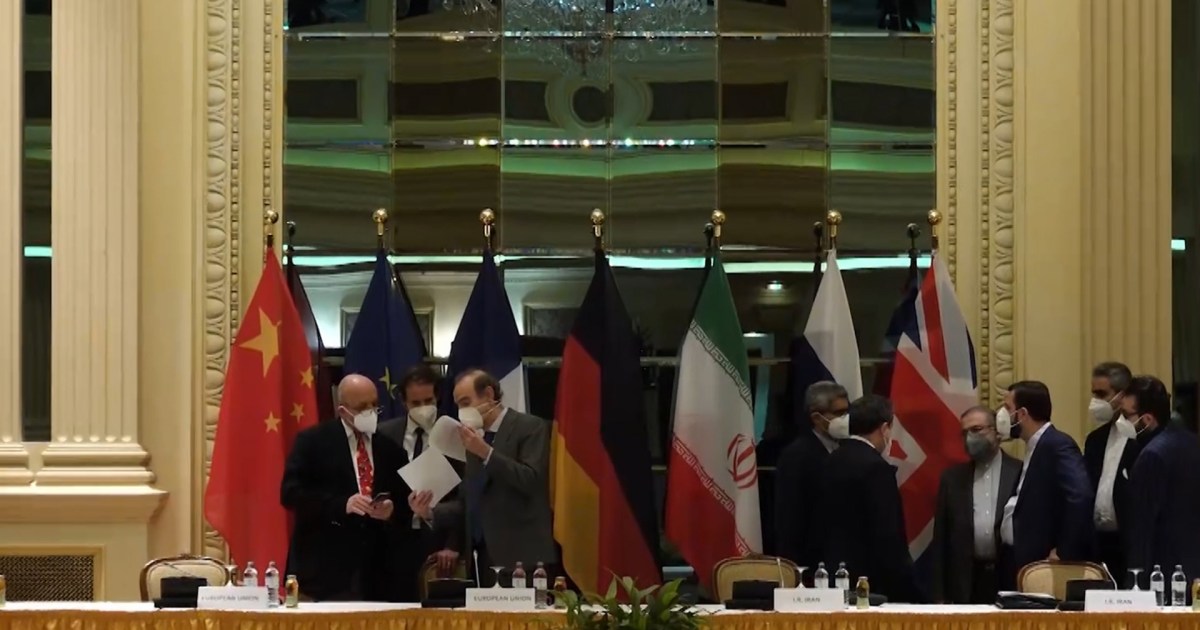US Ambassador to the United Nations Linda Thomas Greenfield said that the talks that took place in Vienna on returning to the nuclear agreement with Iran were fruitful, while the US State Department said it would like to build on the process aimed at returning to mutual compliance in the nuclear agreement.
Politico reported that a number of officials participating in the Vienna nuclear talks said that the United States and Iran may soon reach a common basis for returning to the nuclear agreement.
The site stated that negotiators have drawn up a draft of about 20 pages, which includes options for resolving the remaining obstacles, including the fate of centrifuges, and the disagreement over inspectors' access to enough nuclear sites in Iran.
Politico added that US and European negotiators are pushing for the draft to include an item on subsequent talks related to Iran's missile program and its behavior in the region.
However, the issue of sanctions imposed on Iran remains a point of contention between Washington and Tehran, as the two parties have not yet reached an agreement on the sanctions that the United States will lift in the framework of the new agreement.
Western powers avoid resolution against Iran at IAEA
In the context, diplomats said today, Friday, that Britain, France, Germany and the United States will not press for a resolution against Iran at the meeting of the Board of Governors of the International Atomic Energy Agency next week, despite Tehran's failure to provide explanations for the uranium particles found in 3 sites.
Any decision could result in an escalation of tension between Tehran and the West, jeopardizing talks to revive the 2015 nuclear deal.
At the last quarterly meeting of the 35-nation Board of Governors, the three European powers prepared - with the support of the United States - a draft resolution criticizing Tehran, but did not formally submit it with the announcement of the Director of the International Atomic Energy Agency, Rafael Grossi, about new talks.
The IAEA said on Monday that talks aimed at getting Iran to explain the source of the uranium particles believed to be linked to activities long predating the nuclear deal failed to lead to new explanations.
This raised questions about whether the draft resolution would be revived.
"The May 31 report cannot be ignored just for the JCPOA (nuclear deal) talks, but a decision is unlikely now," one diplomat said.
Five other diplomats said that no decision will be issued, but that what will happen is simply just statements issued by the GCC countries.
"There should be strong statements... (Iran) has obligations that need to be fulfilled," said a diplomat from a country that backed a resolution at the council's last meeting.
It remains unclear whether the draft resolution will have the necessary support for approval in the Board of Governors, the main decision-making body of the International Atomic Energy Agency, which meets more than once a year.
Indirect talks between Iran and the United States to bring the two countries back into full compliance with the terms of the nuclear deal will resume next week.
The outcome of Iran's elections on June 18 is likely to result in a conservative president becoming president.

